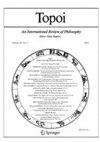断言、谎言与真理准则
IF 1.3
2区 哲学
0 PHILOSOPHY
引用次数: 0
摘要
在《真理与真实性》的第四章中,伯纳德·威廉姆斯提出了一种对断言的描述,这种断言严重依赖于信念和意图的“心理学”概念。在第五章中,他对说谎的定义同样依赖于这些概念。对威廉姆斯来说,只要有规范来控制断言或被谎言打破的规范,这些规范与说出你认为是真的有关,而不是说出真实的东西。我认为,由于各种原因,这种对断言(和谎言)的“心理化”解释是错误的。威廉姆斯这种做法的一个后果是,“我能在这里说实话吗?”对于代理人来说,这是一个更开放的问题。只有通过这个问题具有任何意义的语言游戏预设,我们才能得出一个公平的图景,即“不”的答案何时以及如何可能是合理的。本文章由计算机程序翻译,如有差异,请以英文原文为准。
Assertion, Lying and the Norm of Truth
Abstract In chapter four of Truth and Truthfulness Bernard Williams presents an account of assertion that relies heavily on the ‘psychological’ notions of belief and intention. In chapter five his definition of lying similarly relies on such notions. For Williams, insofar as there are norms governing assertion as such or norms broken by lying as such, these norms relate to saying what you think to be true, as distinct from saying what is true. I argue that this ‘psychologized’ account of assertion (and lying) is for various reasons mistaken. A consequence of Williams’s approach is that ‘Shall I tell the truth here?’ is presented as a much more open question for an agent than it possibly can be. Only by adverting to the language-game presupposed by that question’s having any sense at all can we arrive at a fair picture of when and how the answer ‘No’ might be reasonable.
求助全文
通过发布文献求助,成功后即可免费获取论文全文。
去求助
来源期刊

TOPOI-AN INTERNATIONAL REVIEW OF PHILOSOPHY
PHILOSOPHY-
CiteScore
3.10
自引率
7.10%
发文量
47
期刊介绍:
Topoi''s main assumption is that philosophy is a lively, provocative, delightful activity, which constantly challenges our received views, relentlessly questions our inherited habits, painstakingly elaborates on how things could be different, in other stories, in counterfactual situations, in alternative possible worlds. Whatever its ideology, whether with the intent of uncovering a truer structure of reality or of soothing our anxiety, of exposing myths or of following them through, the outcome of philosophical activity is always the destabilizing, unsettling generation of doubts, of objections, of criticisms. It follows that this activity is intrinsically a ''dialogue'', that philosophy is first and foremost philosophical discussion, that it requires bringing out conflicting points of view, paying careful, sympathetic attention to their structure, and using this dialectic to articulate one''s approach, to make it richer, more thoughtful, more open to variation and play. And it follows that the spirit which one brings to this activity must be one of tolerance, of always suspecting one''s own blindness and consequently looking with unbiased eye in every corner, without fearing to pass a (fallible) judgment on what is there but also without failing to show interest and respect. Topoi''s structure is a direct expression of this view. To maximize discussion, we devote most or all of this issue to a single topic. And, since discussion is only interesting when it is conducted seriously and responsibly, we usually request the collaboration of a guest-editor, an expert who will identify contributors and interact with them in a constructive way. Because we do not feel tied to any definite philosophical theme (or set of them), we choose the topic with absolute freedom, looking for what is blossoming and thriving, occasionally betting on what might - partly through our attention - ''begin'' to blossom and thrive. And because we do not want our structur e to become our own straightjacket, we are open to contributions not fitting the ''topos'', and do not rule out in principle the possibility of topic-less issues.
 求助内容:
求助内容: 应助结果提醒方式:
应助结果提醒方式:


